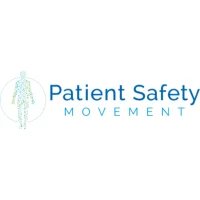Founded in 1968, ECRI is a globally-focused non-profit dedicated to patient safety and evidence-based healthcare. They have joined world leaders to provide support for World Patient Safety Day 2021. World Patient Safety Day is an official WHO campaign for all healthcare system stakeholders to unite and improve patient safety globally. World Patient Safety Day is observed annually on 17 September, with this year focusing “Safe Maternal and Newborn Care."
Laurie
Menyo, Director of Strategic Communications, ECRI
In support of this year’s theme, Safe Maternal and Newborn Care, ECRI, an independent non-profit health services organisation, and our affiliate, the Institute for Safety Medication Safety Practises (ISMP), developed a World Patient Safety Day 2021 Resource Centre (https://www.ecri.org/world-patient-safety-day-2021/) with free and shareable patient safety, medication safety, and evidence-based medicine resources to reduce the risks and harm that women and newborns are exposed to due to unsafe care.
ECRI’s president and CEO Marcus Schabacker, MD, PhD, filmed a video, stating, “Safe Maternal and Newborn Care is the most fundamental healthcare issue, and indeed, the most fundamental human rights issue. Together, with leaders around the globe, we aim to work toward safer, more affordable, equitable, and accessible care for mothers and babies everywhere.”
ECRI ran a comprehensive social media campaign on Twitter, Facebook, LinkedIn, and Instagram.
ECRI’s employees held a baby supplies donation drive for a local non-profit called The Baby Bureau. By donating baby clothing, diapers, toys, and other necessities, ECRI employees personally supported maternal health in our local community.
Carlye Hendershot, MSN, RN, Senior Analyst and Consultant, Patient Safety, Risk and Quality, ECRI
How does ECRI plan to address systemic racial and socio-economic inequity in the healthcare system to reduce maternal mortality and newborn deaths?
ECRI has served as a primary contractor for the Health Resources and Services Administration (HRSA, a large US federal health agency) for over ten years. HRSA oversees the Health Centre Programme, which provides quality primary health care (including obstetric, newborn, and paediatric services) to nearly 29 million patients—1 in 11 people—across the US, regardless of their ability to pay.
ECRI supports HRSA’s health centre programme by providing patient safety consulting, education, and actionable resources for the frontline staff and providers at 1,400 health centres who are serving the nation’s most vulnerable populations, including perinatal patients who are living in poverty and in medically-underserved communities, disproportionately represented by persons of colour. The educational deliverables ECRI creates for HRSA health centres consistently focus on and/or are informed by principles of health equity.
What initiatives are being undertaken by ECRI to achieve Safe Maternal and Newborn Care?
In addition to our work with the Health Resources and Services Administration, ECRI publishes an annual report outlining the ten most important patient safety concerns. In 2020, ECRI named Maternal Health as the second item on our Top 10 Patient Safety Concerns. This report is reviewed and used by thousands of healthcare leaders to guide their patient safety priorities.
What services does ECRI offer to providers in order to improve maternal and newborn care?
More than 28,000 individuals working at health centres across the US take advantage of ECRI’s patient safety resources, provided to them at no cost on behalf of HRSA, including extensive obstetric clinical risk management training, guidance, and expert 1:1 consulting, which supports them in providing safer, higher-quality maternal and newborn care to hundreds of thousands of patients, many from vulnerable communities that otherwise lack access to perinatal services.
ECRI conducts in-depth analysis on millions of perinatal patient safety events submitted to the ECRI and ISMP Patient Safety Organisation by thousands of health care clients, identifying patterns of patient safety risks and providing best practises guidance based on this analysis.
ECRI partners with health hospitals and health systems in diverse communities across the US to conduct intensive, individualised assessments of their perinatal services, including onsite evaluations, 1:1 interviews, and review of policies and procedures, providing detailed, actionable findings and assisting with the implementation of action plans to improve quality and safety of care.
ECRI offers a variety of comprehensive web-based risk/patient assessments for healthcare clients, including an Acute Care Obstetric Risk Assessment and an Obstetric Office Practise Risk Assessment, which incorporates questions and related best practise guidance on addressing racial and ethnic disparities in perinatal care.


![Tuberculosis Diagnostics: The Promise of [18F]FDT PET Imaging Tuberculosis Diagnostics: The Promise of [18F]FDT PET Imaging](https://res.cloudinary.com/healthmanagement-org/image/upload/c_thumb,f_auto,fl_lossy,h_184,q_90,w_500/v1721132076/cw/00127782_cw_image_wi_88cc5f34b1423cec414436d2748b40ce.webp)




